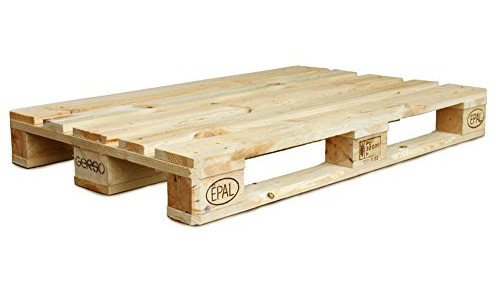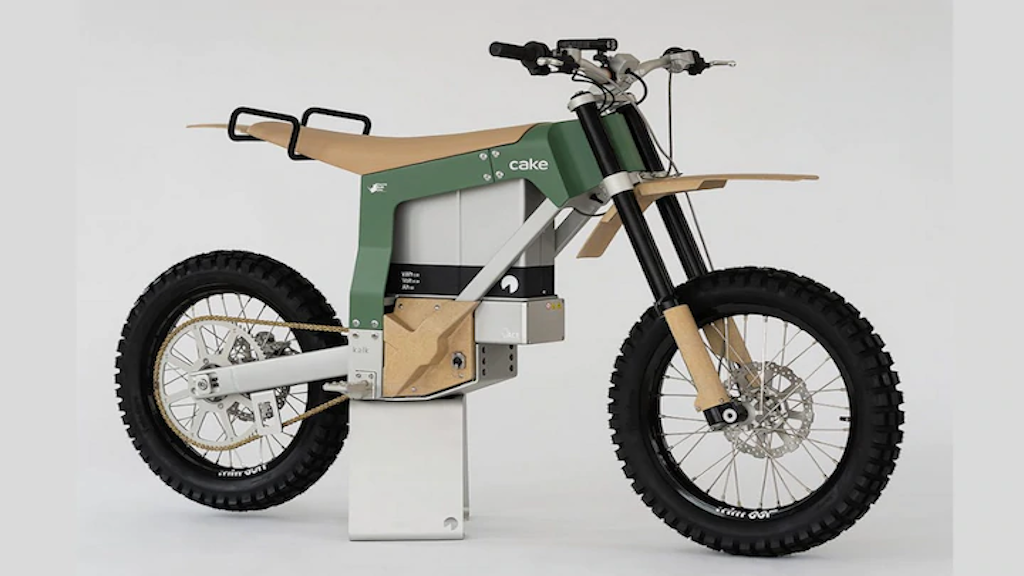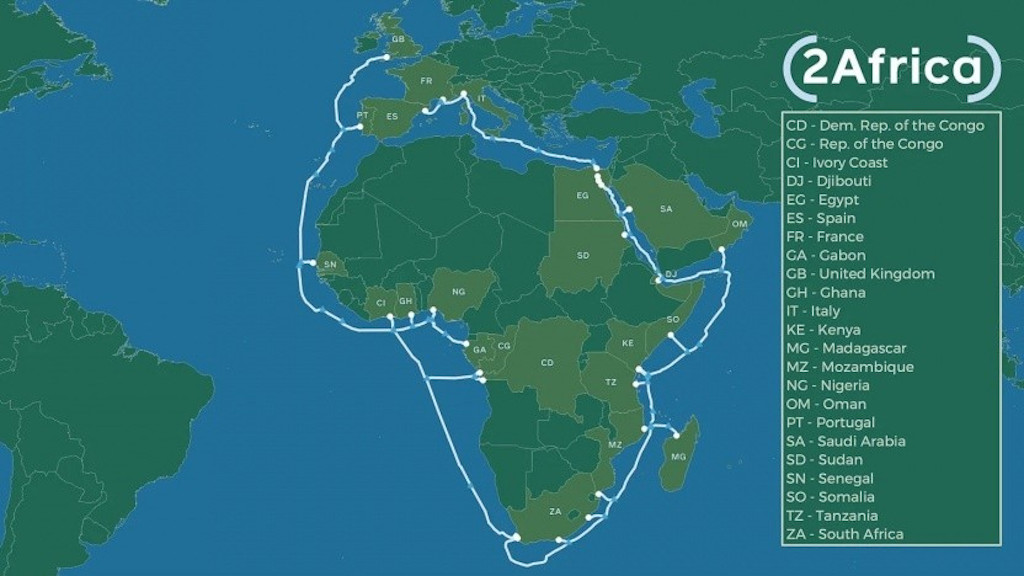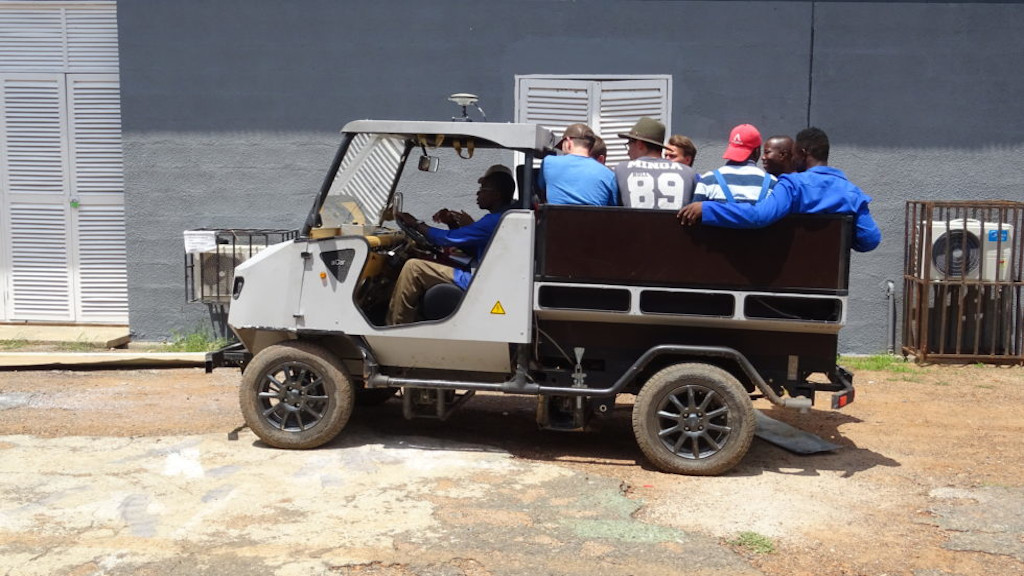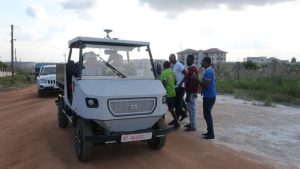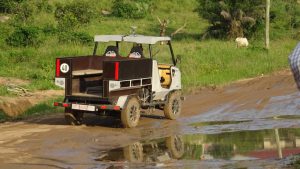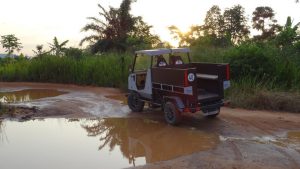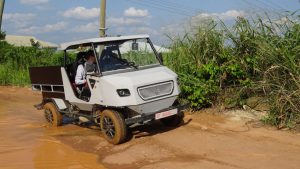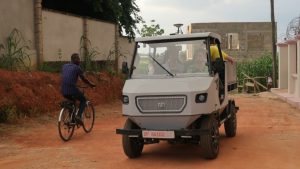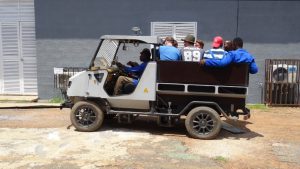Leider ist der Eintrag nur auf English verfügbar.
Der historische Paletten-Engpass erreicht den Alltag
Hersteller von E-Motorrädern sagt Wilderern den Kampf an
Wilderer in Südafrika machen den dortigen Rangern das Leben schwer und entziehen es Elefanten, Nashörnern und anderen Wildtieren. Damit die Tierschützer es besser mit den Kriminellen aufnehmen können, sollen sie mit Elektromotorrädern ausgestattet werden.
Das schwedische Unternehmen Cake, ein Hersteller von Elektromotorrädern, hat sich mit dem Southern African Wildlife College (SAWC) zusammengetan, um illegale Wilderei zu bekämpfen. In Zukunft sollen die Ranger, die in Südafrika Jagd auf illegale Wilderer machen, sich mit eigens von Cake entwickelten E-Motorrädern durch den Busch bewegen. Diese sind im Gegensatz zu den aktuell verwendeten Motorrädern mit Verbrennungsmotor umweltfreundlicher und – besonders wichtig – lautlos. Denn gerade die Lautstärke konventioneller Motorräder ist es, die die Wilderer häufig bereits lange im Voraus warnt, dass Ranger auf dem Weg sind.
Quelle: chip.de
Seekabel umschließt Afrika im Jahr 2024
Seekabel von Facebook und Vodafone erreicht fast Erdumfang. 2Africa soll einmal um den afrikanischen Kontinent laufen. Auch Orange und China Mobile sind dabei.
Facebook arbeitet mit Telekommunikationsbetreibern zusammen, um ein 37.000 Kilometer langes Seekabel zu bauen, mit dem 16 Länder in Afrika versorgt werden sollen. Das gab das Unternehmen in seinem Blog bekannt. Die Länge des Seekabels 2Africa erreicht fast den Erdumfang von rund 40.000 Kilometer. Das Seekabel wird rund um den gesamten afrikanischen Kontinent gebaut und soll, wenn es im Jahr 2024 fertiggestellt ist, die dreifache Kapazität aller aktuellen Seekabel Afrikas liefern. Neben Facebook sind die südafrikanische MTN GlobalConnect, Telecom Egypt für Afrika, Orange und Vodafone als europäische Vertreter sowie China Mobile International dabei. Ein weiterer Partner ist der Großhändler West Indian Ocean Cable Company (WIOCC).
Elektrolaster für Afrika kostet weniger als 10.000 Euro
Ein Elektrolaster für Afrika? Die TU München hat mit dem aCar einen Transporter entwickelt, der sogar auf afrikanischen Pisten zurecht kommen soll. Der Minimalist unter den Elektrofahrzeugen geht 2019 in Bayern in Serie und wird auch in Deutschland angeboten.
Das Automobil ist für Deutsche eine Selbstverständlichkeit: Getränkekisten nach Hause fahren, über die Autobahn zur Arbeit gondeln, im Urlaub ans Mittelmeer düsen. Anders in Afrika: Dort haben die wenigsten Menschen ein Auto, oft werden Waren mit Karren und Fahrrädern transportiert. Elektroautos spielen in Afrika schon gar keine Rolle.
Doch schon seit Jahren arbeitet die TU München (TUM) an einem Fahrzeugkonzept, das selbst in armen Ländern Warentransporte erlaubt, allerdings absolut umweltfreundlich. „Es handelt sich um ein Fahrzeug, das sich die Menschen dort finanziell leisten können, es ist geländefähig und kann große Laster transportieren“, erklärt Prof. Markus Lienkamp, Leiter des Lehrstuhls für Fahrzeugtechnik.
Elektrolaster entsteht in afrikanischer Microfactory
Rund um das TUM-Forscherteam ist ein Spin-Off hervorgegangen: Evum Motors. Die Firma wird in einer Modellfabrik im niederbayerischen Bayerbach eine Kleinserie von rund 1.000 Elektromobilen fertigen, ab Ende 2019. „Bevor das Auto in Afrika produziert werden kann, müssen wir zunächst die technischen Abläufe in den Griff bekommen“, sagt Projektleiter Sascha Koberstedt. „Dann können wir Menschen aus Afrika hier schulen, die wiederum ihr Wissen vor Ort weitergeben.
Schon 2017 hatten die Entwickler das Auto erstmals in Afrika auf Herz und Nieren getestest und auf der IAA einem größeren Publikum vorgestellt. 2020 soll die erste Microfactory in Afrika eröffnen, die das aCar für weniger als 10.000 Euro anbieten wird. „Ich kann Ihnen die Teile des Autos in die Garage stellen und Sie können das in einer Woche zusammenschrauben“, unterstreicht Koberstedt.
Bis 2025 werden dann an elf Produktionsorten weltweit 110.500 Autos jährlich entstehen. Das minimalistische E-Fahrzeug düst ab Dezember 2019 auch über deutsche Straßen. Allerdings liegt der Preis mehr als doppelt so hoch, bei rund 22.000 Euro. Der Grund: höhere Produktionskosten und technische Umrüstungen für die Straßenzulassung.
70 km/h Höchstgeschwindigkeit, 200 km Reichweite
Die Basis des 1,5 m breiten, 3,7 m langen, 2,10 m hohen und 800 kg leichten Fahrzeugs ist ein Rahmen aus Profilblechen, die auch im Lkw-Bau zum Einsatz kommen. Zwar hat das aCar keinen Luxus an Bord, es fehlen Servolenkung, ABS, Radio und Klimaanlage. Doch technisch ist das Elektrofahrzeug zuverlässig. Verbaut ist beispielsweise ein elektrischer Antriebsstrang von Bosch. „Ein Elektroantrieb ist nicht nur umweltfreundlicher, sondern auch technisch die bessere Lösung, da er wartungsarm ist und sein volles Drehmoment direkt beim Anfahren entfalten kann“, erklärt Projektleiter Martin Šoltés.
Zwei Elektromotoren mit jeweils 11 PS beschleunigen das Fahrzeug mit Allradantrieb auf eine Höchstgeschwindigkeit von rund 70 km/h. Die Batterie hat eine Kapazität von 20 kWh und ermöglicht eine Reichweite von bis zu 200 km. Das Aufladen an einer Haushaltssteckdose dauert sieben Stunden.
 afric-Invest
afric-Invest
